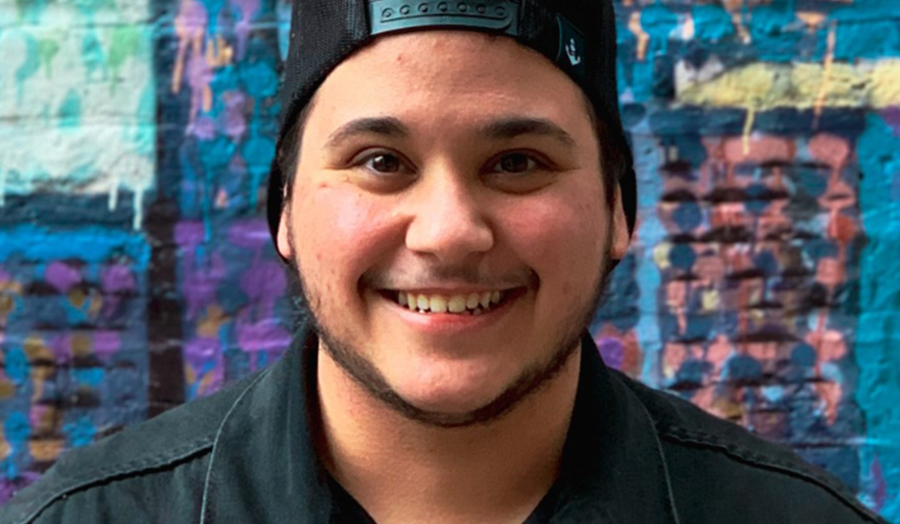The notion of identity in the digital world is a fascinating one, and one that Digital Media PhD student Cinar Aydogan is exploring in some depth. Having completed a Digital Media MA at London Met, he's now moved from looking at player identities in virtual games in the MA to researching the identity development of trans* people in connection with social media in his PhD.
Can you tell us a bit about your background and what led you to London Met?
I have a background in marketing and communication, and during my studies in Germany, I was introduced to London Met by a senior business lecturer (Paul Bullock). I fell in love with the city and thought that I would pursue further studies in London after my undergraduate degree. I attended the Digital Media MA, which provided me with valuable insights into virtual reality games, interaction and web design, and digital media strategies. I enjoyed the full-time postgraduate course and met amazing people, made friends from across the globe and studying at London Met made me realise that there could be a place for me in academia.
Can you explain a little more about your PhD and why you chose it?
I am doing a self-funded PhD in Digital Media, which I am combining with concepts from sociology. My research is on the Stages of disclosure: The role of social media on the identity development of trans* individuals, which is a mouthful!
The topic is covering four areas: identity, social media, disclosure and gender. Social media can be used to explore one's identity and offer a safe space to do so. Simplified, I want to investigate the role social media plays in developing an emerging identity and how trans* individuals experience their identity online. An interdisciplinary approach comes with challenges, and I am thankful to have the support of my supervisors.
My reason for doing a PhD in this area was that I wanted to contribute to knowledge, increase the visibility of LGBTQ+ research and make the voices of (unfortunately) stigmatised and marginalised trans* people heard.
What have been the most exciting findings of your research so far and what real-world applications might they have?
One of the exciting findings of my research was that the trans* community is very generous and happy to share their experiences. Of course, trust is crucial, and it has been one of my priorities to take every possible precaution and ethics into consideration before conducting my research. Another interesting finding is that through conversations, presentations, and different seminars, people mention how relatable the research is. Even if one does not identify as trans* (or any other part of LGBTQ+), they can understand the implications social media has on how we see ourselves and how most strive to reach the image of an “ideal self”.
I understand you’ve been a presenter at National Student Pride – can you tell us more about that and what were the highlights for you?
In 2020, National Student Pride had a Researching the Rainbow panel for the first time. I am happy to announce that I will present at the 2021 Researching the Rainbow panel as well! I was very nervous during my presentation, as it was the first time I spoke on a stage in English. I had my fellow London Met PhD students with me to support me during the event. Unfortunately, it was one of the last events before our lives changed due to the pandemic.
Being part of the UK’s biggest National Student Pride was an exciting experience and a great opportunity to meet other researchers, connect with LGBTQ+ people and listen to talks about visibility and queer mental health.
What’s your favourite spot or piece of equipment at the University and why?
I love the PhD study rooms and the courtyard at Holloway Road. These are great spots to connect with other students and enjoy the sunshine!
How would you describe the research culture and support for research students at London Met?
I am part of the Postgraduate Research Society and the support that research students give each other is outstanding. We have weekly study groups where we discuss various topics and keep each other motivated through the very isolated journey that a PhD can be.
What’s next for your career?
I am currently collecting data for my research, which is my main focus. I am very keen on developing the research area and raising awareness of trans* issues. I would love to pursue a career in academia and continue further research.
Any tips for students thinking about a research degree here?
One of the best pieces of advice I got from my second supervisor, Elena Moschini, was something along the lines of: A PhD is a long-term relationship, you have to be committed to your topic. You will spent a lot of time with it.

